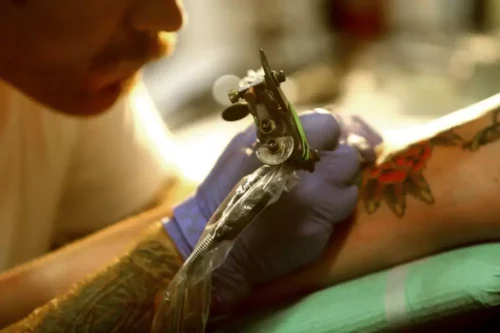What does it feel like to be drunk? Effects and stages

From babies to the elderly, our bodies are programmed to produce these involuntary reactions when our nostrils detect an irritant. A sneeze is a sudden, forceful, uncontrolled burst of air through the nose and mouth. Use of this site constitutes acceptance of Sober Recovery’s “Terms of Use”, “Privacy Policy”, “Cookie Policy”, and “Health Disclaimer”. The material on this site is for informational purposes only, and is not a substitute for medical advice, diagnosis or treatment provided by a qualified health care provider. Some people may be at risk of alcohol overdose after just a few drinks, especially if they are young, small, or do not often drink. A 2016 study found that very intoxicated people underestimate how drunk they are, how extreme their drinking is, and how likely their drinking is to affect their health.

Care and Treatment
Endorphins are the same feel-good chemicals that flood the brain during an orgasm. Having sluggish ALDH2 enzymes, or lower levels of it altogether, is ultimately the product of having genetic variation in your ALDH2 gene. Specifically, genetic changes that make your corresponding ALDH2 enzyme bad at its job.
- As we now know, alcohol intolerance is an issue with metabolizing alcohol — not an overzealous immune system.
- Cover your nose and mouth with a tissue if possible, or direct your sneeze to the crook of your elbow.
- Dec. 24, 2012— — Kristin Brown loved to drink – perhaps partied a little too much when she was in her 20s, but when she hit her 30s, alcohol suddenly hit her the wrong way.
- Some evidence suggests that photic sneeze reflex is at least partially genetic..
How do healthcare providers treat sneezing?

However, sneezing is rarely a sign of a serious problem. Sneezing from chemical and physical irritants is not due to the release of histamine, so most antihistamines would not be expected to help in these cases either. This is one of the reasons it can sometimes be hard to distinguish a cold from allergies.

Sometimes it’s an alcohol allergy, not alcohol intolerance
Simply avoid alcohol, limit how much you drink or avoid certain types of alcoholic beverages. If you’re starting a new medication, it’s always a good idea to talk with your healthcare provider or pharmacist about how your medication can interact with alcohol. People with alcohol intolerance may notice one or more of these symptoms after taking a few sips of alcohol.
A google search provided little answers, so now im curious. Physical irritants such as bright sunlight can also cause sneezing. The nasoocular reflex involves a connection between the eyes and nose, which causes stimulation of nerves within the nasal mucous membranes.
Sneezing from alcohol?

What’s more is that this genetic variation can be passed down from parent to child, making alcohol intolerance an inherited condition. And since it affects your genes, once you inherit it, you’re sneezing while drunk stuck with it. The first is that alcohol contains compounds that act as allergens. The most common of these compounds are sulfites, which are typically highest in beer, brown liquor, and cider.
What Happens When We Sneeze?
- The more a person drinks, the higher their BAC will be.
- However, if you have a serious reaction or severe pain, see your doctor.
- Some people experience flushing, headaches, and nausea shortly after drinking alcohol.
- Contrary to popular belief, your eyes won’t pop out if you manage to conquer this challenge.
- For example, if wine makes you sneeze, try drinking vodka or gin instead.
- Also, check out these 12 weird facts you never knew about sneezing.
Sneezing is usually not harmful, but it can be a nuisance. If you find that warm drinks make you sneeze, try chilling them before you drink them. This will help to soothe the mucous membranes in your nose and prevent them from swelling and triggering a sneeze. Mixed drinks containing any of the ingredients mentioned earlier are also likely to cause sneezing.
Can You Mix Benzodiazepines Like Xanax With Alcohol?
- Individuals can vary in their sensitivity to irritants and allergens.
- That runny or stuffy nose you get if you’re intolerant to alcohol may feel and seem like allergies, but it’s not.
- The CDC recommends covering your mouth and nose with a tissue when sneezing and then disposing of it immediately.
- For most people, a single drink — for example, 1.5 ounces (oz) of hard liquor, 12 oz of beer, or 5 oz of wine — will elevate blood alcohol by 0.06 or 0.07 per drink.
